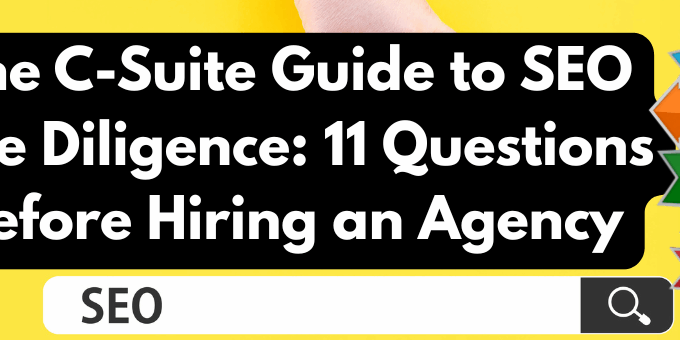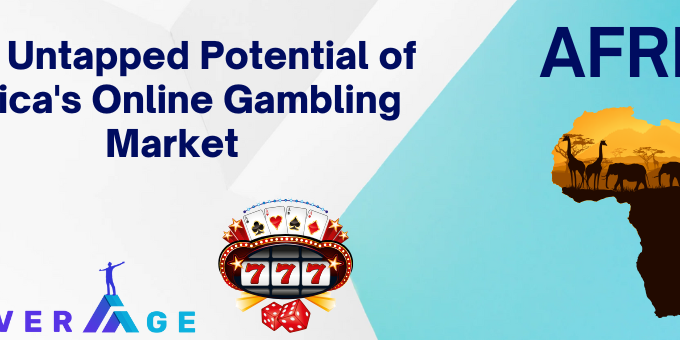Your SEO agency just told you they’ve “optimized your iGaming site.”
Three months later, your organic traffic is up. Your conversion rate is down. Your affiliate partners are complaining. And your compliance officer just flagged three pages that could jeopardize your Malta Gaming Authority license.
Here’s what nobody told you: Brand SEO and affiliate SEO in gambling are not the same sport. They’re not even the same game.
If you’re building a multi-million dollar gambling brand using affiliate SEO tactics, you’re running a marathon in sprint shoes. If you’re running an affiliate network with brand-building patience, you’re bringing a knife to a gunfight.
And If your brand site and your affiliate network are using the same SEO strategy, one of them is failing. Probably both.
This isn’t about better or worse. It’s about fundamental business model differences that demand completely opposite strategic approaches.
The Multi-Million Dollar Blind Spot
Most gambling operators approach SEO like it’s a monolithic channel. They hire an agency, set KPIs around “organic traffic” and “keyword rankings,” and expect results across their entire digital ecosystem.
Then reality hits.
Your brand site ranks for comparison keywords like “best online casino”—which sounds great until you realize you’re competing with your own affiliates, cannibalizing the very traffic they’re supposed to send you, and burning marketing budget to do it.
Or your compliance team discovers your link building strategy mirrors aggressive affiliate tactics—buying links from gambling forums and using exact-match anchor text at scale. That works for affiliates operating in regulatory grey zones. For a licensed operator? That’s a license review waiting to happen.
The root cause isn’t incompetence. It’s a fundamental misunderstanding of business models.
Brand SEO is about building a fortress.
Your goal is direct player acquisition. You need trust, authority, and conversion optimization. You’re optimizing for lifetime value (LTV), not click-through rate (CTR). Your target keywords include branded terms (“YourBrand login,” “YourBrand bonuses”), navigational queries, and highly regulated transactional searches where compliance is non-negotiable.
Your customer acquisition cost (CAC) in gambling can range from $100 to over $500 per player (Source: VIXIO GamblingCompliance 2024). Every organic player you acquire is a $200+ asset. Your SEO strategy should reflect that.
This is a marathon asset. You’re optimizing for:
- Player Lifetime Value (LTV), not click volume
- Trust and authority, not traffic spikes
- Regulatory compliance, not ranking shortcuts
- Long-term brand equity, not short-term conversions
- Corporate reputation protection, not aggressive experimentation
One bad link from an unlicensed operator? That’s a license review. One piece of content that violates advertising standards? That’s a fine that makes your CFO cry.
The Affiliate Site: A High-Performance Instrument
Affiliates monetize through referrals, Cost Per Acquisition (CPA) deals or revenue share. They target comparison keywords (“best slots sites”), review queries (“Casino X review”), and informational searches that lead to recommendations. They optimize for referral volume, not
Your affiliate network operates on a completely different physics.
These are agile, high-ROI instruments built for speed and conversion. Affiliates have:
- Low regulatory exposure (no licenses to protect)
- Lean operations that can pivot markets in weeks
- Revenue models tied to clicks and conversions, not brand equity
- The ability to test boundaries brands cannot touch
- No shareholders questioning every tactical decision
This is a sprint. Affiliates optimize for:
- Immediate referral volume, not long-term relationships
- Click-Through Rate (CTR) to operators, not on-site engagement
- Market agility, not compliance perfection
- Revenue velocity, not brand reputation
- Calculated risk, not absolute safety
One bad link? Disavow and move on. One site penalized? Build another.
The fundamental error most operators make: treating these as variations of the same strategy instead of recognizing they’re playing entirely different games
The At-a-Glance Playbook: Brand vs. Affiliate SEO
Before we dive deep, here’s the strategic framework that should guide every decision:
| Dimension | Brand SEO (Operator) | Affiliate SEO | Why It Matters |
| Primary Goal | Direct player acquisition & conversion | Traffic generation for referral clicks | Dictates entire content and KPI strategy |
| Target Keywords | Branded queries, transactional terms with compliance implications | Commercial comparison keywords, informational queries, competitors branded keywords | Different keyword intent = different content approach + different keyword clouds opportunities |
| Content Strategy | Trust signals, responsible gambling, game info, licensing | Listicles, reviews, “best of” comparisons, how-to guides | User is at different stages of decision journey |
| Link Building | White-hat, editorial, PR-driven, risk-averse | Aggressive outreach, niche edits, calculated risk | Regulatory exposure differs drastically |
| Technical Priority | Geotargeting, compliance integrations, UX for conversion | Crawl efficiency, internal linking for topic clusters | Different technical foundations required |
| Success Metrics | Player LTV, registration conversion rate, branded search volume | Referral volume, CTR to operators, affiliate commission revenue | Measuring the wrong KPIs = strategic failure |
| Regulatory Risk | Extreme (license-threatening) | Moderate to Low (can pivot markets) | Risk tolerance defines tactical boundaries |
| E-E-A-T Focus | Authoritativeness (licensing), Trustworthiness (security) | Experience (reviews), Expertise (game knowledge) | Google’s YMYL standards applied differently |
The Brand’s Marathon
You’re Not Optimizing for Traffic—You’re Building Trust at Scale
When someone lands on your brand site, they’re one click away from depositing $500. That requires an extraordinary level of trust.
Your SEO strategy isn’t about ranking for “best online casino.” It’s about dominating the searches that happen when someone’s already considering you:
- “Is [YourBrand] legit?”
- “[YourBrand] vs [Competitor]”
- “[YourBrand] withdrawal time”
- “[YourBrand] license verification”
These branded queries have an average Click-Through Rate that is 2-3x higher than non-branded queries. Users searching for your brand are 90% down the conversion funnel. That’s where your SEO investment should focus.
The Keyword Moat: Protecting High-Value Territory
Brands build moats around their most valuable keywords. Think of it as territorial defense:
Your branded terms (“FanDuel bonus,” “DraftKings sportsbook,” “Bet365 login”) are nearly impossible for competitors or affiliates to rank for. Google’s algorithms heavily weight domain authority and relevance for branded queries.
This is your protected territory. You should own:
- Position #1 for all brand + modifier combinations
- The featured snippet for brand-specific questions
- The “People Also Ask” section with FAQ schema
- Sitelinks showing your most important pages (login, bonuses, games)
But here’s the strategic pivot most brands miss: You shouldn’t waste resources fighting affiliates for non-branded comparison keywords.
When you publish “Top 10 Online Casinos” on your brand site, you’re:
- Competing with partners who are better positioned to rank for that query
- Confusing your positioning (are you an operator or a review site?)
- Creating content with terrible conversion rates (users want unbiased comparison, not your sales pitch)
The marathon strategy is simple: Own your moat. Let affiliates battle in the open field.
Risk Portfolio: Compliance-Bound by Design
Every SEO tactic a brand considers must pass through a compliance filter.
Can we build this link? First question: Does it meet ASA standards?
Can we publish this content? First question: Does it display responsible gambling information?
Can we target this keyword? First question: Are we allowed to advertise this offer in this jurisdiction?
For YMYL (Your Money or Your Life) topics like gambling, Google’s Quality Rater Guidelines place immense weight on signals of Trust and Expertise (Source: Google Search Quality Rater Guidelines 2024). That means:
✓ Licenses must be prominently displayed on every page
✓ Responsible gambling tools must be easily accessible
✓ Terms and conditions must be transparent and findable
✓ Company information and contact details must be clear
✓ Payment security and data protection must be emphasized
This isn’t just for the regulator, it’s a ranking signal. Brands that don’t meet these trust thresholds get algorithmically demoted, regardless of link profile strength.
Content Strategy: Authority Over Volume
Brand content serves one purpose: convert high-intent users who are already aware of you.
That means your content library should include:
- Game information pages optimized for “[Brand] + [game type]” queries
- Bonus and promotion pages with full terms transparency
- Payment method guides that rank for “[Brand] + [payment method]”
- FAQ and help content targeting long-tail support queries
- Responsible gambling resources (trust signal and ranking factor)
- About/License pages with comprehensive E-E-A-T signals
You’re not publishing 50 articles per month. You’re publishing 5-10 pieces of evergreen, authoritative content that build cumulative trust.
Quality over volume. Authority over reach. Trust over traffic.
Link Building: White-Hat Warfare Only
Brands cannot afford link-building risks. Every backlink must pass three tests:
- The Regulator Test: Would we be comfortable showing this link to our licensing authority?
- The Shareholder Test: Does this link enhance or risk our corporate reputation?
- The Algorithm Test: Is this link pattern sustainable under Google’s evolving guidelines?
That limits your tactics to:
- Editorial PR: Features in Forbes, Business Insider, Financial Times, Bloomberg
- Industry associations: EGBA, IAGR, regional gaming councils
- Sponsorships: Sports teams, esports, entertainment (where legally allowed)
- Responsible gambling partnerships: GamCare, BeGambleAware, National Council on Problem Gambling
- Mainstream media coverage: News about launches, expansions, innovations
The ROI on these links is measured in months or years, not weeks. But they compound. A single Forbes mention is worth more for long-term brand authority than 100 gambling blog links.
Technical Foundation: Compliance Infrastructure
Your technical SEO must support:
- Geotargeting and IP blocking for licensed vs. unlicensed markets
- Hreflang implementation for multi-market operations
- Responsible gambling modal integration without hurting UX metrics
- Mobile-first architecture (60%+ of gambling traffic is mobile)
- Schema markup for organization, FAQs, licensing information
One client came to us after their previous agency implemented geo-restrictions incorrectly—they were blocking Google’s crawlers from licensed markets. Six months of SEO investment wasted because technical strategy ignored compliance requirements.
This is the marathon. Slow and steady doesn’t mean slow and careless. It means building foundations that support sustained growth without regulatory or algorithmic risk.
The Affiliate’s Sprint: Agile Market Domination
Now let’s talk about the opposite approach: affiliate SEO.
You’re Not Building Trust—You’re Capturing Intent
Affiliates exist to answer one question: “Which casino should I choose?”
Your SEO strategy is entirely focused on intercepting users during the research and comparison phase:
- “Best online slots sites”
- “Casino no deposit bonus 2025”
- “DraftKings vs FanDuel”
- “Online poker real money USA”
These are high-volume, high-competition, non-branded keywords. Affiliates must rank for these terms or they don’t eat.
Keyword Guerrilla Warfare: Agility Over Authority
While brands build moats, affiliates engage in guerrilla warfare across the vast battlefield of commercial queries.
Over 70% of affiliate marketers use SEO as their primary traffic source (Source: AuthorityHacker 2024). The strategy is surgical:
- Identify high-intent commercial queries with affiliate commission potential
- Create content that captures comparison intent (listicles, reviews, guides)
- Build internal linking structures that funnel authority to money pages
- Optimize for CTR to operators with compelling CTAs and bonus offers
- Test, iterate, scale what works, kill what doesn’t
Affiliates don’t waste time on branded queries they can’t win. They dominate the middle of the funnel where users are actively comparing options.
The sprint mindset: Move fast, test boundaries, pivot when algorithms shift.
Risk Portfolio: Opportunity-Driven by Design
Affiliates have a fundamentally different relationship with risk.
Brands ask: “What’s the safest path that protects our license?”
Affiliates ask: “What’s the fastest path to ROI within acceptable risk bounds?”
That means affiliates can:
- Target unregulated or grey-market geos brands can’t touch
- Use more aggressive link-building tactics (niche edits, guest posts on gambling blogs)
- Test content angles that push boundaries (provocative comparisons, bonus arbitrage strategies)
- Build and rebuild sites quickly if one gets penalized
- Operate multiple domains to diversify risk
- Target competitor brand terms
One affiliate network we know operates 15+ domains across different niches and geos. If one gets hit by an algorithm update, they have 14 others generating revenue while they rebuild.
Brands don’t have that luxury. Your domain is your identity. You can’t just rebuild DraftKings.com if Google penalizes you.
Content Strategy: Volume and Velocity
Affiliate content is a volume game with surgical precision.
A successful affiliate site might publish:
- 50-100 articles in the first 3 months to establish topical authority
- Detailed reviews for every major operator in their target markets
- Comparison guides for every game type, payment method, and use case
- How-to content capturing informational queries that lead to conversions
Link Building: Calculated Aggression
Affiliates can take risks brands cannot.
Their link-building playbook includes:
- Guest posting on gambling blogs, tipster sites, casino news platforms
- Niche edits inserting links into existing content on relevant sites
- Forum participation in gambling communities (where allowed)
- Influencer collaborations with streamers, YouTubers, Twitch personalities
- Content partnerships with sports media, entertainment blogs
- Broken link building replacing dead casino links with fresh content
- Adult and high risk industries
These tactics are higher risk but higher velocity. An affiliate can build 100 links in a month using aggressive outreach.
The sprint doesn’t allow for 6-month PR campaigns. Affiliates need links now to rank now to generate revenue now.
Technical Foundation: Speed and Scale
Affiliate technical priorities are entirely different:
- Site speed at scale: With 500+ pages, every millisecond matters for crawl efficiency
- Internal linking architecture: Topic clusters and pillar pages that distribute authority
- Affiliate tracking implementation: Click IDs, conversion pixels, attribution without hurting page load
- Programmatic content management: Templates that generate location or operator-specific pages efficiently
- Crawl budget optimization: Ensuring Google prioritizes money pages over thin content
This is the sprint. Fast, focused, and willing to test boundaries that brands can never approach.
| Dimension | Brand (Marathon) | Affiliate (Sprint) | Why It Matters |
| Primary Asset Type | Long-term corporate fortress | High-velocity conversion instrument | Defines risk tolerance and time horizon |
| Business Model | Direct player acquisition → LTV | Referral commissions → CTR | Different revenue models demand different metrics |
| Keyword Strategy | Branded moat defense | Non-branded guerrilla warfare | Brands own territory, affiliates capture opportunity |
| Content Approach | Authority over volume (5-10/month) | Volume and velocity (20-50/month) | Different production models and quality thresholds |
| Link Building | White-hat editorial only | Calculated aggressive tactics | Risk tolerance dictates available tactics |
| Technical Priority | Compliance infrastructure | Speed and scale | Different foundations for different goals |
| Regulatory Exposure | Extreme (license-threatening) | Low to moderate (can pivot) | Determines what tactics are even available |
| E-E-A-T Strategy | Natural superpower (inherent authority) | Manufactured trust signals | Brands are authorities, affiliates must prove expertise |
| Success Timeline | 12-24 months for compounding returns | 3-6 months for initial ROI | Different patience levels and measurement windows |
| Risk of Failure | Catastrophic (can’t rebuild easily) | Manageable (can launch new domains) | Strategic decisions reflect survivability needs |
Why Most Agencies Get This Wrong (And What It’s Costing You)
Here’s the uncomfortable truth: Most SEO agencies don’t specialize in gambling. They treat iGaming like any other e-commerce vertical.
That creates three critical failures:
Failure 1: Misaligned KPIs
Generic agencies measure success with:
- Organic traffic (meaningless without conversion context)
- Keyword rankings (without distinguishing branded vs. non-branded value)
- Backlink count (without assessing regulatory risk)
Brand KPIs should be:
- Branded search volume growth
- Registration conversion rate from organic traffic
- Player LTV from organic channel
- Brand reputation metrics (share of voice for brand queries)
Affiliate KPIs should be:
- Referral volume to operator partners
- CTR from content to sign-up pages
- Revenue per session
- Cost per acquisition of affiliate-driven users
Failure 2: Strategy Contamination
We’ve seen brands publish “Top 10 Casinos” content because their agency said “that’s what ranks.”
We’ve seen affiliates waste months building brand authority for their domain name instead of focusing on money keywords.
The result: Brands competing with their own partners for low-converting traffic. Affiliates investing in vanity metrics that don’t drive commissions.
Failure 3: Dangerous Tactical Application
The most expensive mistake: Using affiliate tactics on brand sites.
One client came to us after a manual action from Google. Their previous agency had:
- Built 1,500+ links from gambling forums using exact-match anchors
- Published comparison content competing directly with their affiliate partners
- Used niche edit services to place links on grey-market casino blogs
For an affiliate? That’s aggressive but workable. For a licensed brand? That’s a license review waiting to happen.
Their recovery cost them 9 months, €350,000+ in lost organic revenue, and nearly triggered regulatory scrutiny when traffic dropped 70% overnight.
| Approach | Generic SEO Agency | Leverage (iGaming Specialist) |
| Content Strategy | “Write reviews and comparisons” | “Brand builds trust, affiliates build traffic—never mix them” |
| Link Building | Standard outreach, some niche edits | Risk-assessed, compliance-first, regulator-aware tactics |
| KPIs | Organic traffic, rankings | Player LTV, registration CVR, brand search volume |
| Technical Focus | Speed, mobile optimization | Speed + geotargeting + compliance integration |
| Regulatory Awareness | None | Deep understanding of MGA, UKGC, AGCO requirements |
| Risk Management | Not considered | Central to every strategic decision |
The difference? Generic agencies optimize for rankings. We optimize for regulatory-compliant revenue growth.
The Five Strategic Questions Every iGaming CMO Must Answer
If you take nothing else from this article, use this framework to audit your SEO strategy:
1. Are we competing with our own affiliates?
Run a keyword gap analysis. If your brand site ranks for “best online casino” or “top gambling sites,” you’re in direct competition with partners who are better positioned to win those queries. Reallocate that effort to branded terms.
2. Does our link profile pass a regulatory audit?
Imagine your licensing authority reviews your backlinks tomorrow. Would any links raise red flags? Links from unlicensed operators, grey-market forums, or link schemes are time bombs.
3. Do our success metrics align with our business model?
If you’re measuring brand SEO success by “organic traffic” instead of “registration conversion rate” or “organic player LTV,” you’re tracking the wrong north star. Traffic doesn’t matter if it doesn’t convert to depositing players.
4. Is our content strategy trust-first or traffic-first?
Brands must build trust. If your content reads like an affiliate’s comparison article rather than an authority’s informational resource, you’re confusing your users and diluting your brand.
5. Can our technical infrastructure scale while maintaining compliance?
As you expand to new markets, can your site dynamically serve localized, compliant experiences? Or will technical debt slow your international growth?
Answer these questions honestly, and you’ll immediately see where your strategy is misaligned.
The Leverage Difference: Strategic SEO for High-Stakes Markets
At Leverage, we don’t do generic SEO. We specialize in high-regulation, high-complexity markets where strategic errors don’t just hurt rankings—they threaten licenses.
Our approach for iGaming brands:
Phase 1: Strategic Audit & Risk Assessment (Weeks 1-2)
- Backlink profile analysis with regulatory risk scoring
- Content audit to identify affiliate-style content on brand sites
- Technical compliance review (geotargeting, responsible gambling integrations)
- Competitive analysis of brand vs. affiliate SERP performance
Phase 2: Strategic Realignment (Weeks 3-6)
- KPI restructuring to align with player LTV and conversion goals
- Content strategy pivot to trust-building, branded queries
- Link disavowal and risk mitigation for non-compliant backlinks
- Technical implementation of geo-restrictions and compliance features
Phase 3: Execution & Scale (Month 2+)
- White-hat link acquisition focused on editorial PR and industry authority
- Branded content production optimized for high-intent conversions
- Ongoing monitoring of regulatory changes across licensed jurisdictions
- Quarterly audits to ensure continued compliance and competitive performance
We’ve worked with operators in 12+ regulated markets, from Malta to Ontario to Kenya. We understand the difference between what works for an affiliate and what works for a licensed brand—because we’ve seen the cost of getting it wrong.
Key Takeaways
If you remember nothing else from this article, remember this:
- Brand SEO and Affiliate SEO are fundamentally different strategies. They have different goals (direct acquisition vs. referral generation), different target keywords (branded vs. commercial), and different risk tolerances (high vs. moderate). A one-size-fits-all approach guarantees failure on both fronts.
- Most traffic doesn’t equal most revenue. Affiliates should own commercial comparison keywords. Brands should own branded keywords and high-intent transactional searches. Fighting for affiliate traffic wastes budget acquiring lower-LTV players.
- Link building for brands is a compliance minefield. Tactics that work for affiliates—niche edits, guest posts, forum links—can jeopardize a brand’s license. White-hat editorial PR and industry authority building are the only safe paths.
- Technical priorities differ completely. Brands must prioritize geotargeting and compliance integrations. Affiliates optimize for crawl efficiency and internal linking at scale. Your technical roadmap should reflect your business model.
- Success metrics must align with business goals. Track player LTV and conversion rates for brand SEO. Track referral volume and CTR for affiliate SEO. “Organic traffic” as a standalone KPI is meaningless without context.
- Regulatory risk isn’t theoretical. We’ve seen manual actions cost operators €400,000+ in lost revenue. We’ve seen risky backlinks trigger license reviews. In iGaming, SEO mistakes have legal consequences.
- The content divide is non-negotiable. Brands build trust through licensing information, responsible gambling content, and branded game pages. Affiliates generate traffic through listicles, reviews, and comparisons. Mixing these strategies dilutes both.
Your Next Move
If you’re a CMO, VP of Marketing, or Head of Digital for an iGaming operator and this article just made you realize your strategy needs a hard reset, let’s talk.




